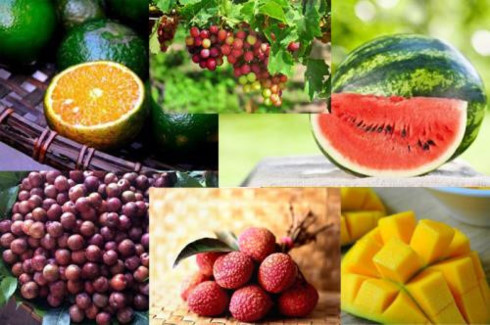Vietnam’s fruit exporters prosper
This week, Vietnam exported 2 tons of star apples to the US for the first time. This marked a positive growth of Vietnam’s fruit sector in expanding its export market.

|
Photo for Illustration (source: VNN)
Over the past 10 years, Vietnam’s fruit and vegetable exports steadily increased earning more than US$1 billion annually. Last year, Vietnam earned US$2.5 billion from fruit and vegetable exports and this figure is estimated at US$3.5 billion this year.
Vietnamese fruits are now available in 70 countries including the US, the EU, Japan, the Republic of Korea, Canada, Australia, New Zealand and the Middle East. According to experts, Vietnam has potential to increase its annual fruit and vegetable exports to US$10 billion in the near future because the world market for fruits and vegetables is about US$240 billion a year.
With 2 million hectares growing fruits and vegetables, Vietnam’s exports of these products can prosper.
Dang Kim Son, former Director of the Institute for Agricultural and Rural Development Policy and Strategy, stressed the need to persify agricultural products.
"We need to comprehensively restructure our crops, not just from maize and rice to high-added-value, short-term plants like vegetables, fruits, and flowers. This means we don’t just change our exports from one product to another, but we need to restructure the whole production system”, said Son.
Economist Le Dang Doanh says the application of technology to agricultural production for exports needs to be increased.
“We need to move to large-scale production, instruct farmers, inspect and monitor the production process, and apply advanced technologies like those from Israel. We need to be cautious in using pesticides”, said Doanh.



